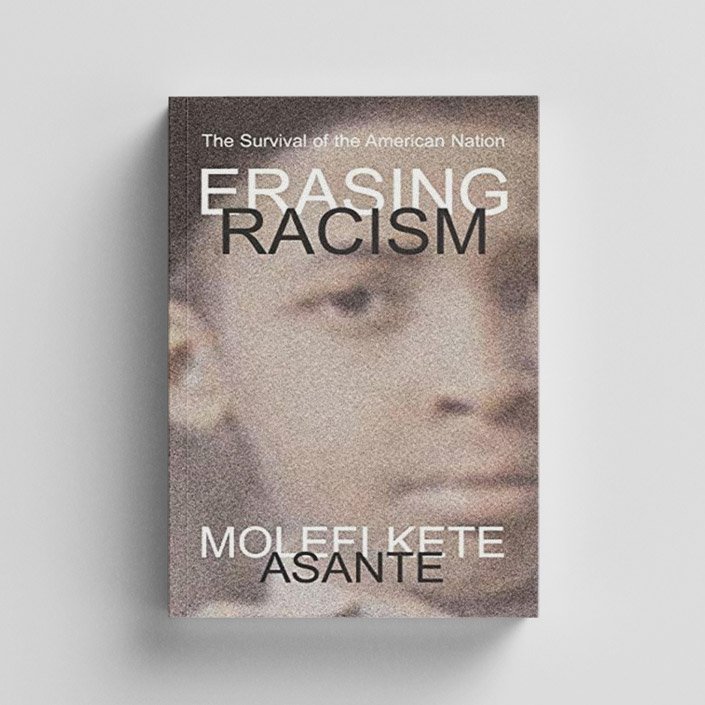Erasing Racism
by Molefi Kete Asante | Prometheus (2003)
Reviews
“*Starred Review* Asante, a scholar, writer, professor, and sixth-generation American descended from enslaved Africans, has been a guiding light in African American studies. In his latest cogent and animated treatise, he draws on his vast and ready knowledge of American history and contemporary events to assess the grievous damage wrought by racism, methodically and dramatically supporting his statement that "every objective presentation of the political, social, and economic situation of African Americans points to the previous condition of enslavement as a principal reason for our contemporary predicament." Court cases, educational and sociological studies, personal anecdotes, and the writings of a wide range of thinkers, including Malcolm X and Cornel West, all feed the engine of Asante's insightful and soundly reasoned observations about the tangible and psychological realities of life in a world poisoned by racial discrimination. Like bell hooks, Asante not only delineates the tragic legacy of racism but also offers a prescription for healing, in which he astutely and productively addresses the complex question of reparations. "Patriotism," Asante writes, "is, first of all, a national commitment to each other," and for the U.S. to be whole and just, old wrongs must be righted.”
—Booklist
Summary
In this profound study of America's persistent racial divide, Molefi Kete Asante, one of our leading scholars of African American history and culture, discusses the festering issue of systemic racism. As Asante makes clear, America continues to be a nation of two peoples with very different histories and perspectives - a white majority that mainly perceives a land of promise and a black minority very much aware that too many African Americans are still consigned to a ghetto wilderness on the margins of society. Despite the legal and social progress of African Americans since the Civil Rights movement of the 1950s and 1960s, the bitter legacy of slavery and subsequent racial injustice continues to haunt American society.
Asante pinpoints the greatest source of frustration and anger among African Americans in recent decades: what he calls "the wall of ignorance" that attempts to hide the long history of racial injustice from public consciousness. This is most evident in each race's differing perspectives on racial matters. Though most whites view racism as a thing of the past, a social problem largely solved by the Civil Rights movement, blacks continue to experience racism in many areas of social life: encounters with the police; the practice of red lining in housing; difficulties in getting bank loans, mortgages, and insurance policies; and glaring disparities in health care, educational opportunities, unemployment levels, and incarceration rates. Though such problems are not expressions of the overt racism of legal segregation and lynch mobs - what most whites probably think of when they hear the word "racism" - their negative effect on black Americans is almost as pernicious. Such daily experiences create a lingering feeling of resentment that percolates in a slow boil till some event triggers an outburst of rage, like the Los Angeles riots of 1992. Only then does the majority start to pay attention.
Asante argues that America cannot long continue as a cohesive society under these conditions. As we embark upon the new century, he urges more public focus on redressing the wrongs of the past and their continuing legacy. Above all, he thinks that Americans must seriously consider some system of reparations to deal with both past and present injustices, an apology, and our own truth-and-reconciliation committee that addresses both the history of slavery and present-day racism. Only in this way, he feels, can we ever hope to heal the racial divide that never seems to be erased.
This is a powerful, deeply perceptive analysis of a crucial social problem by one of America's leading thinkers on race.
You might also be interested in:
The History of Africa
Being Human Being
100 Greatest African Americans



